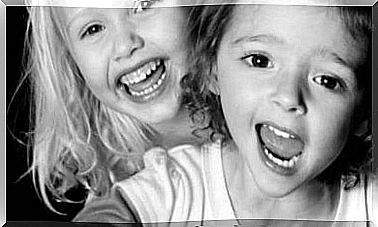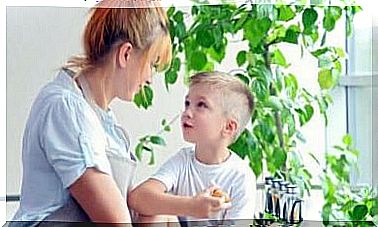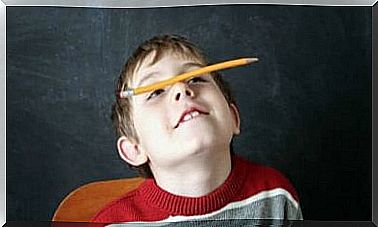It Doesn’t Matter If You Slow Down, Your Mom Will Always Go At Your Pace my
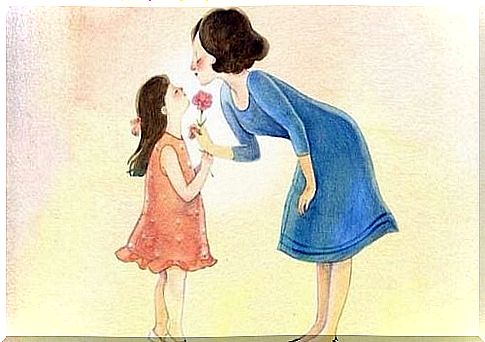
In this busy world, a child who goes slower feels lost. Therefore, she needs her parents to adjust to her rhythm without exerting pressure that will later turn into fears and frustrations.
One of the words many parents keep in mind is ”when”. When should my child start talking? When will you start walking? When should my child start the literacy process?
These
doubts
are very common. However, we should know from the beginning that this ”when” is not the same for all children.
If our child is still slower in carrying out certain learnings, if we realize that his locomotion is still unsafe, if his immature perception or coordination between hands and eyes still lacks harmony, we should not anticipate ideas such as, ‘ ‘my child has a disability” or ”my child has a disorder” .
If there’s one thing we should recognize, it’s that all of us at some point in our development have learning problems.
However, if at any time the pediatrician or psychologist offers us a specific diagnosis of this slowness, this deficiency or immaturity, we should not see it as a problem.
We must see it as a challenge or an adventure to walk daily with our child with maximum energy and motivation.
We understand that there are no children with problems, but rather a society that does not adapt to the needs of our children.
Starting with ourselves. In this way, let us be the wise hand that guides the
rhythm
to allow you to lead a normal life, a dignified and happy life.
Children with slow or different development

Judit Falk is an expert in early childhood education and the author of many books devoted to child development.
One of the questions that head up much of his work is “what do we mean by normal development”.
We live in a society in which it is very common to be always on the go. Thus, a child who goes slower, who has a slower pace, is often seen as a problem for institutions of
teaching
.
This author recommends us something very important . The weakest child, the one who goes slower, is the one with the most strong bonds with their parents. They need us.
What is a slow-developing child like?
The baby’s evolution is considered normal when it meets the goals defined in developmental scales, in pediatrics, child care and psychology tables and manuals.
Children with slow development, in turn, have certain difficulties in reaching certain achievements such as crawling, walking, communicating and developing the ability to pay attention to verbal and expression stimuli.
Undoubtedly, there are many areas and many small details that quickly call the
attention
from parents.
If my child is slow to reach certain abilities, does that mean he or she is mentally or physically retarded?
Before any doubts, problems or difficulties, our doctors, pediatricians and psychologists will always make a correct assessment.
However, it should be made clear that we should not get “obsessed” with these numerical indices.
In turn, many experts warn that in recent years, due to the prematurity of children, there are more and more individual differences and differences regarding the age that should or should not do such a thing.
Therefore, at no point should we think that, because our child is a little slower, he has some kind of disability.
We cannot forget, for example, that Albert Einstein himself was described as a “slow student” at school. No teacher believed in his ability.
I’ll slow down, give me time and follow me
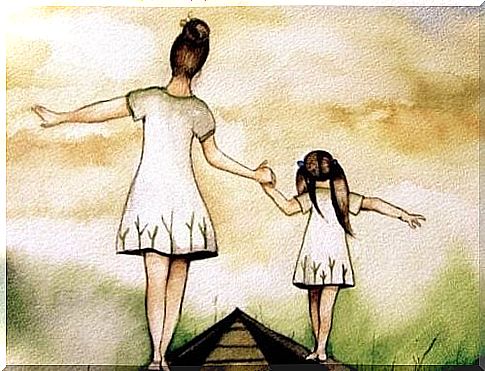
Emmi Pikler was an eminent pediatrician in the 1930s, author of well-known books such as “Moverse en liberad” (“Move freely”, free translation) or “Motricidad global” (“Global motor skills”, free translation) .
However, one of his best-known works, published after his death, was exactly the book “Dadme tiempo” (“Give me time”, free translation).
In this book, we note a very important fact. Every step the child takes slower than the rest should be done with pleasure and love.
Something that is often seen is that, after having achieved certain achievements with the help of adults, the child loses the pleasure or interest in carrying out activities that are appropriate for his level of development.
She stops performing these activities because she feels pressured. feel the
stress
from your parents because you feel insecure, uncomfortable, or afraid.
Therefore, one must never forget something very simple . We must be the mediators of learning, without caring with care, respect and love.
Any assistance provided from proximity rather than pressure is absorbed more easily and significantly.
So let us be companions and patients. Let us always be a hand knows how to keep the rhythm of our
sons.




